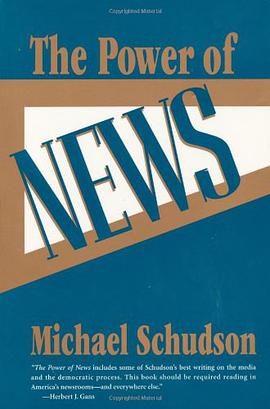The Power of News
豆瓣
Michael Schudson
简介
News is seen by some parties as being simply a form of information, mirroring the world, whereas others believe it is a form of propaganda, promoting a partisan view. Michael Schudson believes that news is really both and neither; it is a form of culture, complete with its own literary and social conventions and powerful in ways more subtle and complex than may be expected. This text examines the news media's emergence as a central institution of modern American society, a key repository of common knowledge and cultural authority. It looks at the way news has evolved in concert with American democracy and industry, subject to the social forces that shape the culture at large, and explores the origins of contemporary journalistic practices, including the interview, the summary lead, the preoccupation with the presidency, and the ironic and detached stance of the reporter toward the political world. It also rejects certain misconceptions, such as the ideas that the press brought about the Spanish-American War and that television decided the Kennedy-Nixon debates. Through this analysis, Schudson shows how the news, by making knowledge public, actually changes the character of knowledge and allows people to act on that knowledge in new and significant ways.
contents
Introduction: News as Public Knowledge
I. The News in Historical Perspective
1. Three Hundred Years of the American Newspaper
2. The Politics of Narrative Form
3. Question Authority: A History of the News Interview
4. What Is a Reporter?
II. Myths of Media Power
5. Trout or Hamburger: Politics and Telemythology
6. The Illusion of Ronald Reagan’s Popularity with Elliot King
7. Watergate and the Press
III. Citizenship and Its Discontents
8. National News Culture and the Informational Citizen
9. Was There Ever a Public Sphere?
10. The News Media and the Democratic Process
Notes
Credits
Index